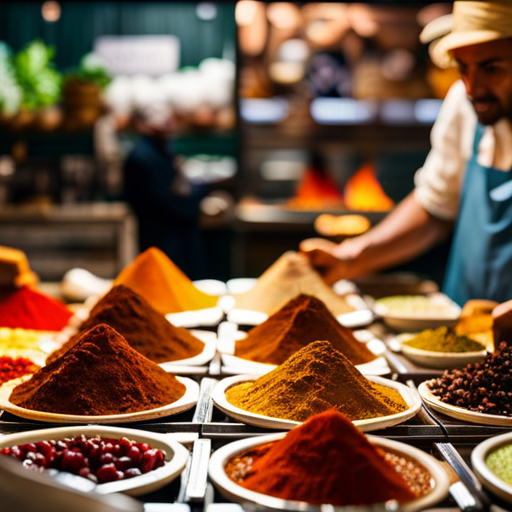Savvy travelers should adopt a multifaceted approach to safeguard their finances. Prioritize using credit cards and mobile wallets for their advanced security features. Protect your cards with RFID-blocking sleeves and by setting up transaction alerts. Avoid public Wi-Fi for financial transactions; use a VPN instead. Diversify cash storage by placing money in multiple spots like a money belt, concealed pockets, or hotel safes, and involve travel companions. Embrace technology by utilizing banking apps for real-time monitoring and consider digital wallets. Practice discretion by keeping valuables concealed and dressing modestly. Discover more smart strategies for foolproof financial security while traveling.
Key Takeaways
– Use credit cards and mobile wallets for enhanced security and zero-liability policies.
– Distribute cash across multiple secure locations to minimize loss risk.
– Employ RFID-blocking wallets and set transaction alerts to protect cards from unauthorized access.
– Utilize VPNs and avoid public Wi-Fi for secure financial transactions.
– Practice discretion by concealing valuables and avoiding public displays of money.
Use Secure Payment Methods
Travelers should prioritize using secure payment methods like credit cards, mobile wallets, and prepaid travel cards to minimize the risk of financial fraud. Credit cards are often equipped with advanced security features, including fraud detection algorithms and zero-liability policies, which can offer peace of mind.
According to a study by Javelin Strategy & Research, credit card fraud losses totaled $6.4 billion in 2020, but robust security measures have helped reduce these losses considerably. Mobile wallets, such as Apple Pay and Google Wallet, provide another layer of security. These digital payment methods use tokenization, which replaces sensitive card information with a unique code, reducing the chances of data breaches.
A report from Juniper Research highlights that mobile wallet transaction values are expected to surpass $9 trillion by 2024, underscoring their growing reliability and acceptance. Prepaid travel cards are another excellent option. They allow travelers to load a specific amount of money, limiting exposure to potential fraud.
Unlike debit cards, which are directly linked to bank accounts, prepaid cards offer an extra buffer against unauthorized access. By embracing these secure payment methods, travelers can focus on their adventures, knowing their finances are well-protected.
Protect Your Cards
While embracing secure payment methods is vital, safeguarding the physical and digital security of your cards is equally important to prevent unauthorized access and potential theft.
First, travelers should consider using RFID-blocking wallets or sleeves. These accessories prevent thieves from skimming card information via radio frequency identification technology, a method increasingly used by criminals. A study by Javelin Strategy & Research highlighted that RFID skimming could expose sensitive card details to fraudsters, making protective gear indispensable.
Next, contactless payments are convenient but can be risky if cards are lost or stolen. Setting transaction alerts through your bank’s mobile app is crucial. These alerts notify you of any unauthorized activity, allowing for prompt action. According to the Federal Trade Commission, timely notification can greatly reduce potential losses.
Furthermore, travelers should avoid using public Wi-Fi for financial transactions. Cybersecurity firm Norton notes that unsecured networks are hotspots for hackers who can intercept card details. Instead, a virtual private network (VPN) provides a secure connection, safeguarding data from prying eyes.
Lastly, having emergency contact numbers for your card issuers is essential. In case of theft, immediate reporting can freeze accounts and mitigate damage. This proactive approach helps ensure that travelers not only feel secure but also remain part of a vigilant and informed community.
Diversify Your Cash Storage
Implementing a diversified cash storage strategy can greatly reduce the risk of losing all funds if a theft or unexpected incident occurs. When travelers distribute their money across multiple locations, they guarantee that even if one stash is compromised, they still have access to some funds.
This technique involves keeping cash in different places such as a money belt, a concealed pocket, a hotel safe, and even inside less obvious items like a toiletry bag.
According to experts from the U.S. Department of State, diversifying cash storage is a critical step in safeguarding money during travel. By not putting all their eggs in one basket, travelers create multiple layers of security, making it harder for thieves to steal everything. It’s recommended to carry small amounts of cash in a wallet for daily expenses, leaving the rest in secure locations.
Moreover, involving travel companions in this strategy can add another layer of security. Each person can carry a portion of the group’s funds, ensuring that no single person is responsible for all the cash. This approach fosters a sense of collective responsibility and belonging, as everyone contributes to the group’s overall safety.
Utilize Technology
In addition to diversifying cash storage, leveraging technology can further enhance the security of funds while traveling. Travelers should consider using digital wallets like Apple Pay or Google Wallet, which offer secure, encrypted transactions without the need for physical cards.
According to a study by Javelin Strategy & Research, mobile payments can reduce the risk of fraud by up to 50%, making them a reliable choice for globetrotters.
Another key technological tool is the use of banking apps. These apps allow travelers to monitor their accounts in real-time, set up alerts for suspicious activities, and even temporarily freeze accounts if a card is lost or stolen. Financial institutions, like Wells Fargo and Chase, provide robust mobile platforms that prioritize user security.
Additionally, virtual private networks (VPNs) are essential for securing online transactions. A VPN encrypts internet connections, ensuring that sensitive financial information remains private, even when using public Wi-Fi. Experts at Cybersecurity Ventures highlight that VPNs can block cybercriminals from intercepting data, thereby safeguarding personal finances.
Incorporating these tech-based strategies into travel plans fosters a sense of community and shared best practices among savvy travelers, ensuring everyone enjoys their journeys with peace of mind.
Practice Discretion
Travelers should always exercise caution by avoiding public displays of money and valuables, as this reduces the risk of attracting unwanted attention. Flashing cash or expensive items can make one an easy target for thieves. By keeping wallets, jewelry, and gadgets concealed, individuals decrease their vulnerability. Instead, they should carry only the essentials and use discreet methods to access money, such as hidden money belts or interior pockets.
Moreover, travelers benefit from blending in with the local culture. Dressing modestly and avoiding ostentatious accessories helps them appear as locals rather than tourists. This practice not only enhances safety but also fosters a deeper connection with the host community. According to a study published by the Journal of Travel Research, those who adopt local customs experience fewer security issues and enjoy a richer, more immersive travel experience.
When withdrawing cash, travelers should opt for secure locations like inside banks or well-lit, busy areas. Additionally, they must remain vigilant about their surroundings and avoid discussing financial matters in public spaces. By practicing discretion, travelers protect themselves and contribute to a safer, more enriching journey.
These strategies ensure they can enjoy their adventures without unnecessary risks.
Frequently Asked Questions
How Can I Avoid Currency Exchange Fees While Traveling?
To avoid currency exchange fees while traveling, one should use a credit card with no foreign transaction fees and withdraw cash from ATMs using a debit card with minimal international fees, ensuring cost-effective and secure transactions.
What Should I Do if I Lose My Wallet Abroad?
If he loses his wallet abroad, he should immediately contact his bank to freeze his cards, report the theft to local authorities, and seek assistance from the nearest embassy or consulate for further support and guidance.
Are Travel Insurance Plans Worth the Investment for Financial Safety?
He believes travel insurance plans are worth the investment for financial safety. They cover unexpected expenses like medical emergencies and lost belongings, providing peace of mind. Industry experts and seasoned travelers endorse their value for thorough protection.
How Can I Securely Access My Bank Account From a Foreign Country?
To securely access a bank account from abroad, use a VPN to encrypt the connection, enable two-factor authentication, and avoid public Wi-Fi. These steps guarantee a safe banking experience, fostering peace of mind and community trust.
What Are the Best Ways to Report a Stolen Credit Card While Traveling?
When reporting a stolen credit card while traveling, one should immediately contact their card issuer’s international hotline. Also, notifying local authorities and utilizing the bank’s mobile app for instant reporting guarantees swift action and protection.
Conclusion
Ultimately, by adopting secure payment methods, protecting their cards, diversifying cash storage, leveraging technology, and practicing discretion, travelers can greatly enhance their financial safety.
These strategies, rooted in expert advice and real-world experience, provide a robust framework for mitigating risks.
Ultimately, being proactive and vigilant guarantees that one’s adventures remain memorable for the right reasons, rather than being marred by financial setbacks.
Travelers who heed these tips will find themselves better prepared for any situation.



